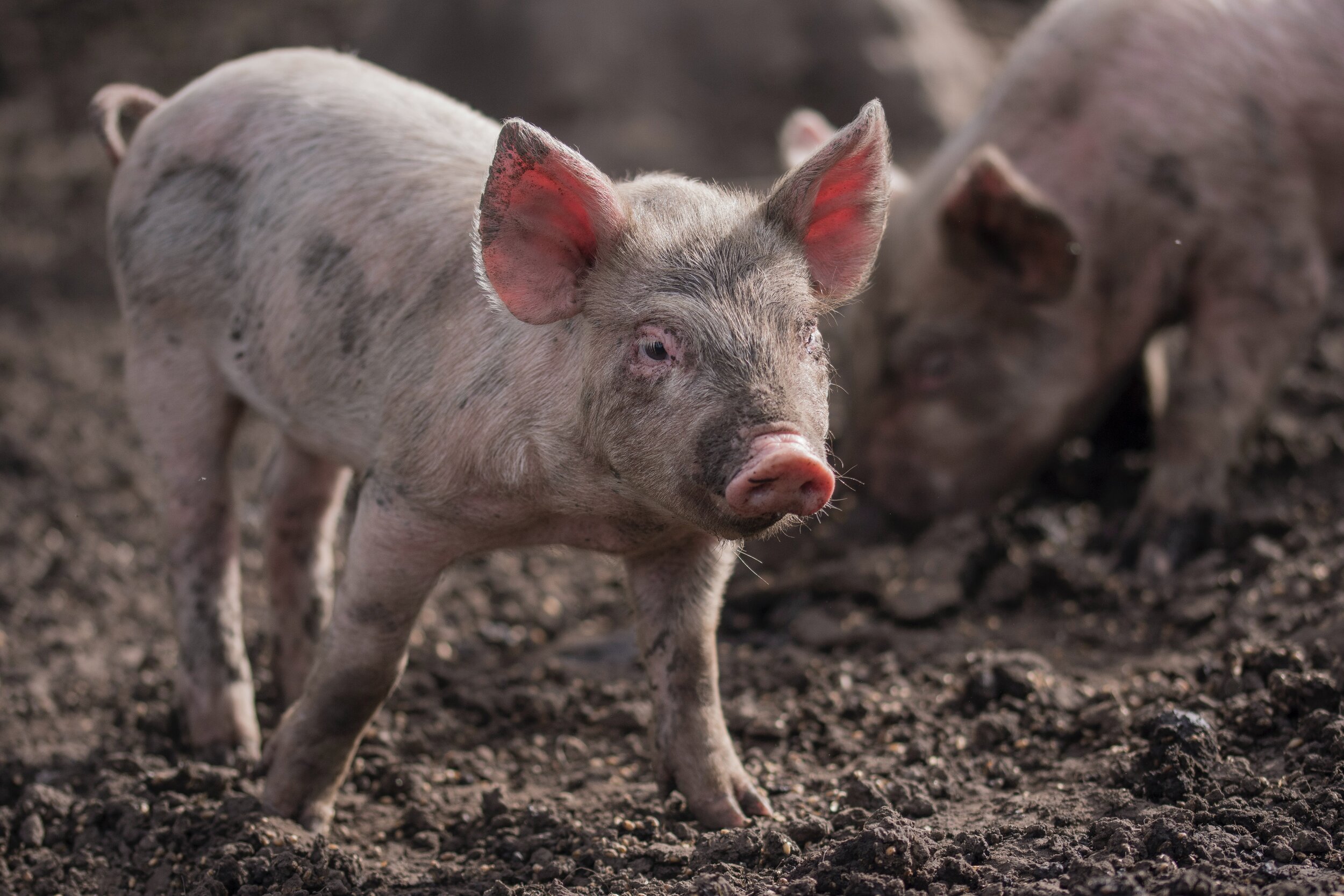How do you earn a pig’s trust? Be nice to his friends.
Trusting the people around you is key to feeling calm and experiencing good welfare. We’ve seen in lots of past research that the way that farmers interact with their animals influences how the animals feel in their presence. For goats, sheep, cows, horses and pigs, talking in a soft voice and handling them gently lead to positive relationships between the farmers and their animals.
Photo by Tim Marshall on Unsplash
We also know that social animals learn from watching one another. Social learning is a powerful force in the animal kingdom, ensuring that important life lessons don’t have to be learned individually. For example, a young chimpanzee who hears another chimpanzee screaming about a nearby snake will be more likely to avoid snakes and act fearful the next time a snake is around.
At an experimental farm in Chile, researchers asked whether young pigs would learn to trust a person after witnessing that person treat a familiar pig kindly and gently, even if they had never interacted with the person themselves. In other words, they asked, would pigs socially learn that a human could be trusted?
The research team studied 50 young pigs, each living in a pen of five pigs who knew each other well. Within each group of five pigs, one was selected as the pig who would interact with the person, and the other four pigs were observers. For weeks, the researcher would visit the pens and spend one-on-one time with each selected pig while his or her pen-mates (pen pals? ;) watched. The researcher would sit calmly, gently pet the pig if he approached, and bottle feed him.
Photo by Marek Piwnicki on Unsplash
Later, the researchers asked how comfortable the observer pigs were in the presence of the person. Remember, these pigs had never interacted with the person themselves. To test their comfort, the researchers brought the pigs individually to a big empty pen, and the person who had been kind to their pen-mate was there. The researchers used video cameras to record and measure each pigs’ comfort. They considered behavioral signs of stress (like squeals, defecting) and how close the pigs preferred to come to the person. The pigs also wore a simple chest strap to measure heart rate variability, a physiological sign of stress.
Importantly, the researchers did the same comfort test with 25 pigs who had never witnessed a pen-mate interacting with this person. They were the control group.
What did the researchers find? That you can earn a pig’s trust by being kind to his or her friends!
Photo by Nicolas Castez on Unsplash
In comparison to the control group, pigs who had witnessed their pen-mate being treated gently by the person showed less fearful behavior and were more likely to approach the person and interact with her. And the heart rate measures showed that the control pigs were feeling distressed, while the pen-mates who had witnessed the gentle behavior of this person did not. The results clearly showed that pigs learned not to fear this person who had a history of treating their friend kindly.
I find this study so inspiring because it reminds me that there are so many ways to positively impact animal welfare. In this case, the person didn’t need to spend one-on-one time with every pig for the pigs to feel comfortable in her presence. Thinking about how to harness social learning to help animals thrive in our care is a great new direction for animal welfare.
Looking to learn even more about pigs? Read more here.
Learn more about the researchers
This research took place at the Research, Technological Innovation and Training Center for the National Swine Industry, at the Pontificia Universidad Católica de Chile.
Article
Luna, D., González, C., Byrd, C. J., Palomo, R., Huenul, E., & Figueroa, J. (2021). Do domestic pigs acquire a positive perception of humans through observational social learning?. Animals, 11(1), 127. Link to article.


